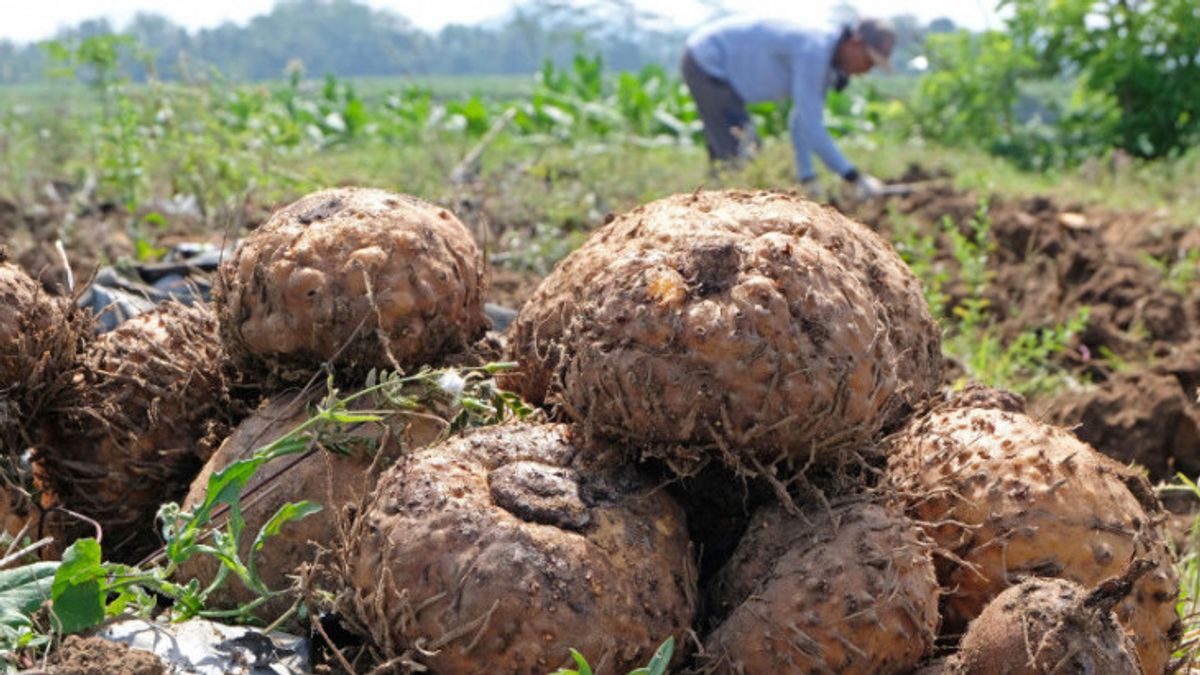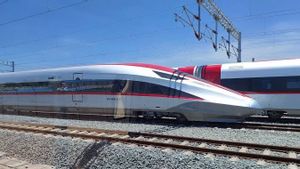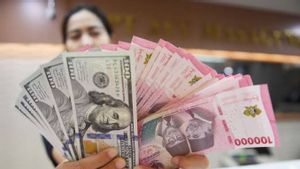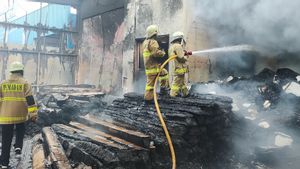JAKARTA - The Ministry of Industry continues to encourage the porang processing industry to produce raw materials for valuable paper and cigarettes.
The processing effort needs to be supported by the use of modern technology and the use of research activities in order to create competitive product innovations.
“The strategies we will implement include technology injection and strengthening R&D and human resources. This step is believed to be able to provide many broad benefits for the national economy, both foreign exchange contributions through investment and exports as well as the absorption of a large number of workers," said Director General of Agro Industry at the Ministry of Industry, Putu Juli Ardika, as quoted by ANTARA, Thursday, July 14.
Putu admitted that he had involved industry players, academics, and R&D institutions to jointly develop an integrated porang processing industry from upstream to downstream.
"We are trying to make the porang processing industry not only supply the needs of the food and beverage industry, but also meet other industrial or non-food sectors," he said.
Putu stated that one of the innovations being developed is that porang can be used as a supporting material for the manufacture of valuable paper and cigarette paper.
These valuable paper products are used for, among others, diploma paper, passport books, marriage books and special archive papers.
"Through the collaboration of research results, it was found that porang can produce auxiliary materials for the manufacture of valuable paper and cigarette paper with better quality and long durability. In fact, the strength of the paper can exceed human life. So, that means if the person has died , his school diploma is still intact, he explained.
From the results of this innovation, the Ministry of Industry is optimistic that it can optimize the use of domestic products and support the import substitution program.
Moreover, Indonesia has many areas that produce porang commodities, starting from the islands of Sumatra, Java, Kalimantan, to West Nusa Tenggara and East Nusa Tenggara.
In 2020, the production of porang tubers in Indonesia will reach 142,000 tons from a land area of 19,950 hectares (Ha), and it is targeted that in 2024 the production of porang tubers will reach 600,000 tons from a land area of 100,000 hectares.
Currently, there are 13 companies that produce porang chips with a total production of 22,833 tons per year, and 6 porang processing industries that are capable of producing glucomannan flour with a total production of 1,180 tons per year.
“The potential use of porang/glucomannan flour in the paper and chemical industries is quite large, reaching 25,362 tons per year. In addition, the rest has the potential to be absorbed by the food and beverage industry, 19,936 tons per year and the pharmaceutical, cosmetic, and other industries at 10,136 tons per year," said Putu.
One of the work units within the Ministry of Industry, namely the Center for Standardization and Services for the Cellulose Industry (BBSPJIS), is ready to support the potential use of glucomannan flour in the paper industry. BBSPJIS stated that the paper industry is the biggest user of starch additives. So far, the starch used by the paper industry comes from tapioca flour, guar gum, and CMC (carboxy methyl cellulose).
BBSPJIS also reported that glucomannan flour can be used as an auxiliary material for making archival paper, cigarette paper, and kitchen tissue. The results of the research show that the use of glucomannan in the manufacture of archival paper and cigarette paper can produce higher strength than guar gum which has been 100% imported so far.
Putu said that his party had also collaborated with PT Pura Barutama in an effort to produce technology for processing porang into flour to support industries in need. This machine is the work of the nation's children because it was designed by an engineer from PT Pura Barutama.
The English, Chinese, Japanese, Arabic, and French versions are automatically generated by the AI. So there may still be inaccuracies in translating, please always see Indonesian as our main language. (system supported by DigitalSiber.id)













